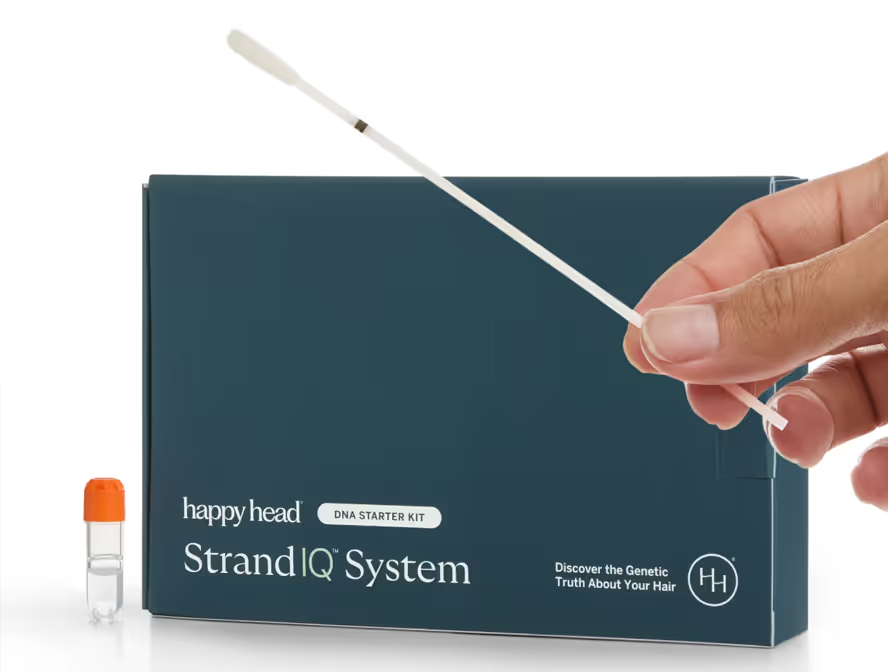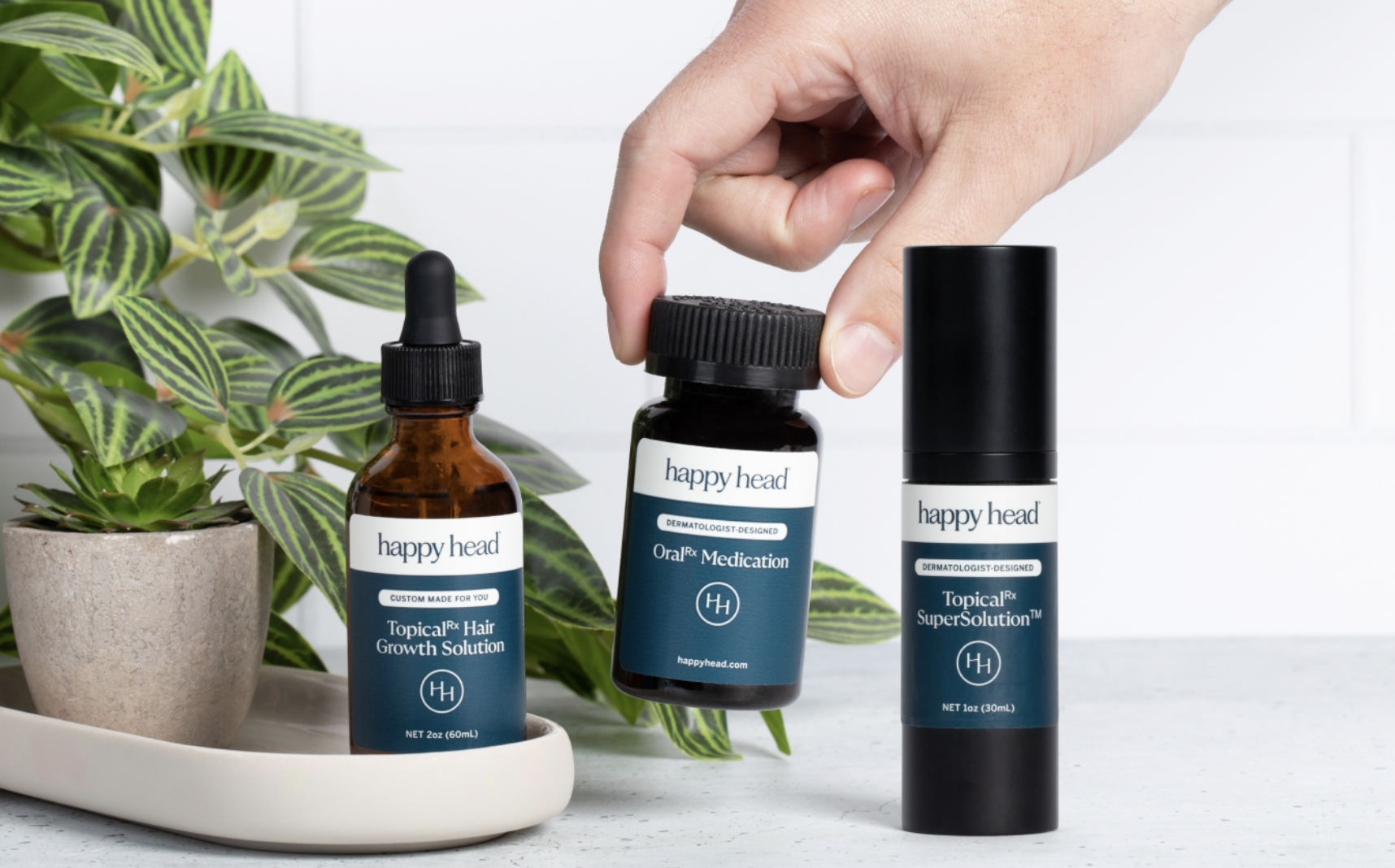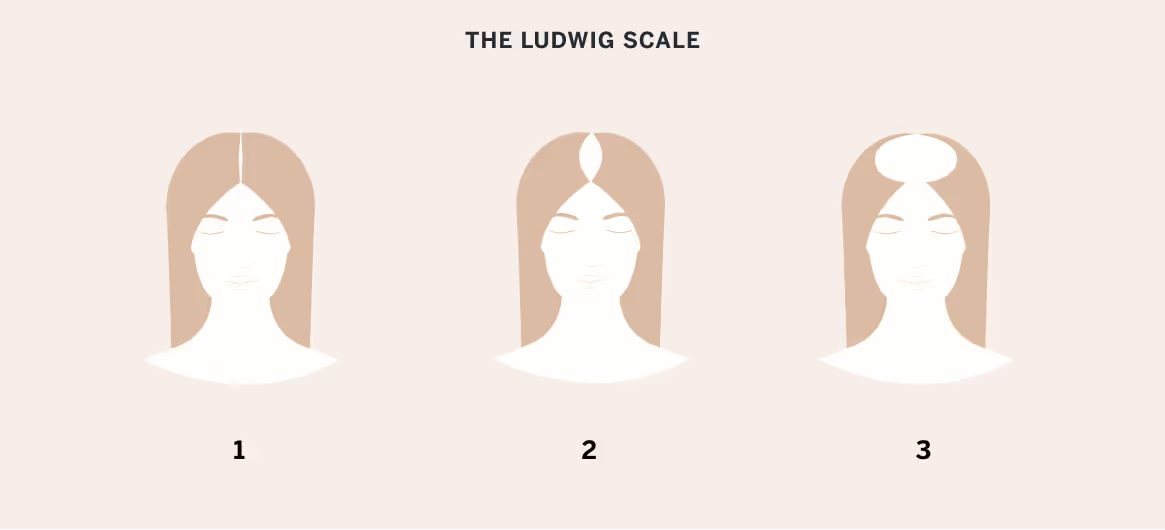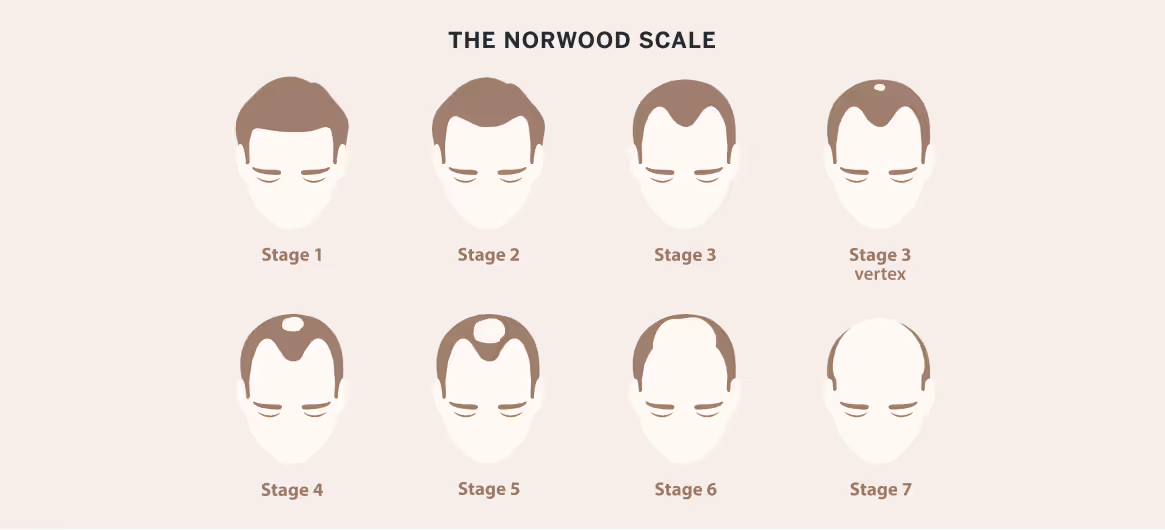Zinc for hair loss is often promoted in beauty blogs and supplement ads as a must-have remedy, but the truth is far more complex.
While zinc is essential for healthy hair, blindly adding it to your routine won’t guarantee regrowth and could even backfire. It all depends on whether you actually need it.
Join us as we break down the science, clear up common misconceptions, explain how to use zinc effectively and safely—if it’s appropriate for your situation—and when other hair loss treatment options will be more beneficial.
The Importance of Zinc for the Body
Zinc is a vital trace mineral involved in hundreds of enzymatic reactions throughout the body. It plays an important role in immune function, helping the body fight off bacteria and viruses, and is essential for wound healing, DNA synthesis, and cellular repair.
Zinc also supports proper growth and development, especially during childhood, adolescence, and pregnancy. It contributes to reproductive health, particularly in sperm production and hormone regulation.
In the gastrointestinal system, zinc maintains the integrity of the intestinal lining and supports nutrient absorption. Additionally, it is involved in taste perception and the regulation of appetite.
Zinc is also a powerful antioxidant, helping to combat oxidative stress and inflammation that can contribute to the development of chronic diseases.
Although the body only requires small amounts of zinc, even a mild deficiency can disrupt several physiological systems, which emphasizes just how critical this mineral is to overall health and well-being.
How Zinc Affects Hair Loss and Growth
Zinc plays a nuanced and often overlooked role in maintaining healthy hair. Although it's not a magic cure for all forms of hair loss, its influence on cellular function, inflammation control, and tissue repair makes it critical to the scalp environment and the hair follicles themselves.
Zinc helps regulate the biological activities that influence hair cycling, and both deficiency and excess can disrupt this delicate process. Understanding zinc’s mechanisms offers insight into when it may—and may not—be beneficial in managing hair loss.
The Role of Zinc in the Hair Growth Cycle
Zinc is essential for the normal function of hair follicle cells, which undergo rapid turnover during the hair growth cycle.
It supports the anagen (growth) phase by promoting healthy DNA replication, protein synthesis, and cell division—necessary processes for the production of strong, healthy strands.
Zinc also helps modulate enzymes and hormones involved in follicle development and protects follicles from oxidative damage and inflammation. Without adequate zinc, the hair cycle can be disrupted, slowing growth or triggering premature shedding.
How Zinc Deficiency Leads to Hair Loss
Zinc deficiency can contribute to telogen effluvium—a condition where hair prematurely enters the resting (telogen) phase and falls out excessively. This occurs because low zinc levels impair protein synthesis, cell replication, and follicle function.
Inflammation may also increase due to reduced antioxidant defenses, further weakening hair follicles.
Clinically, zinc deficiency is often associated with diffuse thinning across the scalp rather than patchy loss. Restoring zinc levels in deficient individuals may improve follicle resilience and help normalize the hair growth cycle.
Can Too Much Zinc Cause Hair Loss?
Excess zinc can disrupt hair health by interfering with the absorption of other essential nutrients, particularly copper and iron. These imbalances may impair red blood cell production and reduce oxygen delivery to hair follicles, thus contributing to thinning hair.
High zinc intake can also suppress immune function and disrupt hormonal regulation, potentially aggravating certain types of hair loss, such as androgenetic alopecia.
Supplementing with zinc beyond recommended levels without medical supervision may do more harm than good, even in those experiencing hair shedding.
Additional Key Nutrients for Hair Growth
While zinc is essential for healthy hair, it's only one piece of the puzzle. Hair follicles rely on a variety of nutrients to function properly, and imbalances in any of them can contribute to shedding or slowed growth.
A well-rounded, nutrient-dense diet supports both scalp health and the hair growth cycle, creating the foundation for healthy, resilient hair.
- Iron: Delivers oxygen to hair follicles; deficiency is a common cause of diffuse hair loss.
- Vitamin D: Helps regulate follicle cycling and immune function.
- Biotin (Vitamin B7): Supports keratin production, a key structural protein in hair.
- Vitamin A: Aids in sebum production and cellular turnover.
- Vitamin E: Acts as an antioxidant, reducing oxidative stress on follicles.
- Protein: Provides the building blocks for hair shaft formation and strength.
How To Know if Zinc Is Causing Your Hair Loss
There are no hair-specific signs that definitively point to zinc as the cause of hair loss. Because symptoms of zinc deficiency often overlap with other conditions, the best approach is to have your doctor assess for nutrient deficiencies through lab work.
A dermatologist can also help determine whether your hair loss is linked to diet, hormones, autoimmune disease, or another underlying issue that requires targeted treatment.
Symptoms of a Zinc Deficiency
Zinc deficiency can manifest in a variety of ways beyond hair loss, making it important to recognize broader systemic signs. Common symptoms include:
- Brittle nails or white spots on the nails.
- Delayed wound healing or frequent infections.
- Loss of appetite or changes in taste and smell.
- Dry, irritated skin or acne-like rashes.
- Fatigue or poor concentration.
- Unexplained diffuse hair thinning.
If you’re experiencing several of these symptoms, it’s worth discussing zinc levels with your doctor.
Other Causes of Hair Loss
Hair loss can result from many factors beyond nutrient deficiencies, and identifying the underlying cause is key to effective treatment. The most common causes include:
- Androgenetic alopecia: A hereditary condition known as male or female pattern baldness.
- Telogen effluvium: Temporary shedding triggered by stress, illness, surgery, or hormonal shifts.
- Alopecia areata: An autoimmune condition that causes patchy hair loss.
- Thyroid disorders: Both hypothyroidism and hyperthyroidism can disrupt hair growth.
- Polycystic ovary syndrome (PCOS): Often linked to thinning in women due to hormonal imbalance.
- Medications: Chemotherapy, certain antidepressants, and blood pressure drugs can cause hair loss as a side effect.
Does Zinc Work for All Types of Hair Loss?
Zinc may be beneficial for hair loss caused by a deficiency, but it is not universally effective for all types.
In conditions such as androgenetic alopecia or alopecia areata, zinc alone is unlikely to reverse hair loss unless a measurable deficiency is present. Treatment for these types typically requires medical therapies targeting hormonal or immune-related causes.
Zinc and Pattern Baldness
Zinc does not treat androgenetic alopecia (pattern baldness) unless there is a deficiency. This type of hair loss is driven by genetics and hormonal sensitivity to dihydrotestosterone (DHT), which zinc does not significantly influence.
Effective management usually involves medications such as finasteride or minoxidil (often both), not nutritional correction alone.
Zinc and Alopecia Areata
Zinc has shown limited and inconsistent benefits in the treatment of alopecia areata. While zinc may support immune regulation, this autoimmune condition typically requires targeted therapies such as corticosteroids or immunomodulators.
Zinc supplementation may help only if a deficiency is present, but it is not considered a primary or reliable treatment on its own.
How To Use Zinc for Hair Loss
Intentionally increasing zinc intake—whether through diet or supplements—is generally safe as long as the daily dosage stays within recommended limits. However, it's important to consult your doctor before making changes, as excessive intake can lead to imbalances and side effects.
True zinc deficiency is relatively uncommon in healthy individuals, and a balanced, nutrient-dense diet is generally all that’s needed to maintain normal zinc levels.
Supplementation may help if a deficiency is confirmed, but if your zinc levels are already adequate, adding more is unlikely to improve hair growth and may lead to disappointing results or unintended consequences.

Best Dietary Sources of Zinc for Hair Health
Getting zinc from food is the safest and most effective way to support healthy hair and overall wellness. A balanced diet can typically provide all the zinc your body needs, without the risks associated with excessive supplementation.
Top dietary sources include:
- Oysters: One of the richest natural sources of zinc
- Beef and lamb: Particularly from grass-fed sources
- Poultry: Especially dark meat, such as turkey thighs
- Pumpkin seeds: A great plant-based option
- Chickpeas, lentils, and black beans: Provide moderate amounts, especially when soaked or sprouted
- Cashews and almonds: Nutritious and zinc-rich
- Fortified cereals and whole grains: Check labels for zinc content
- Dairy products and eggs: Offer modest amounts in a well-rounded diet
Eating a variety of these foods regularly can help maintain optimal zinc levels naturally.
Zinc Supplements and Safety
When dietary intake falls short or a deficiency is diagnosed, zinc supplements can be a convenient way to restore optimal levels.
However, not all supplements are equal—choosing high-quality, bioavailable forms of zinc and adhering to recommended dosages are essential to avoid side effects and nutrient imbalances.
Always consult your doctor before starting supplementation to ensure safety and effectiveness.
When To Consider Supplements for Hair Loss
Zinc supplements should be considered only when a deficiency is confirmed through blood tests or clinical evaluation. Individuals with poor diets, certain digestive disorders, or increased physiological demands may benefit.
Self-prescribing zinc without evidence of deficiency may not improve hair loss and could cause adverse effects.
Recommended Zinc Dosage for Hair Health
For most adults, 8–11 mg of zinc daily meets nutritional needs. Short-term supplementation for deficiency-related hair loss often ranges from 15–30 mg per day, but exceeding 40 mg daily can increase toxicity risk. Dosage should be personalized under medical supervision.
Interactions With Other Nutrients and Medications
Excess zinc can impair the absorption of copper and iron, potentially leading to anemia or neurological issues. Zinc supplements may also interact with antibiotics, diuretics, and immunosuppressants.
Inform your doctor of all the medications you take to avoid harmful interactions.
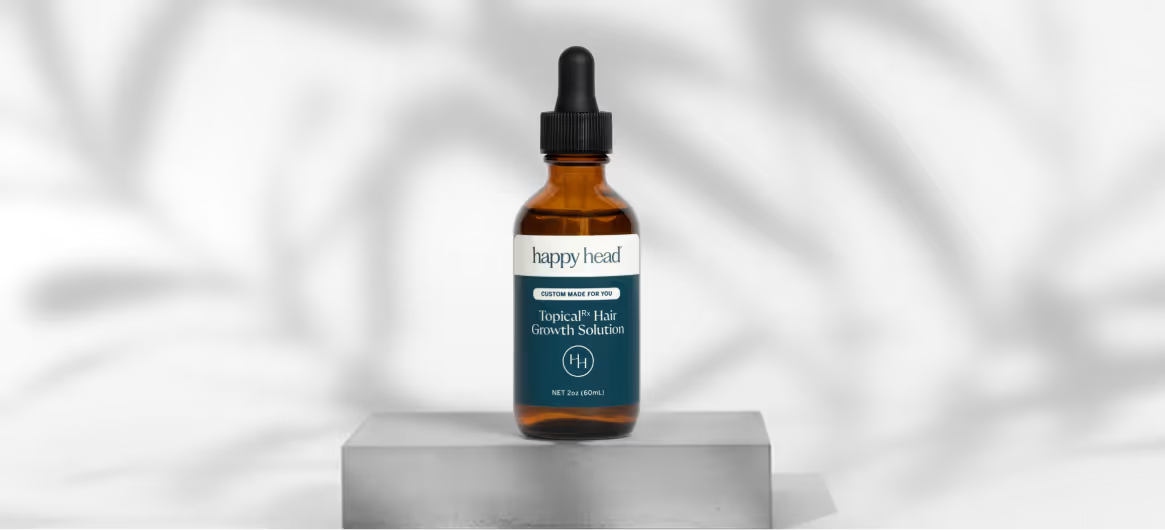
Medications and Therapies To Consider
When hair loss is progressive, severe, or unrelated to nutritional deficiencies, targeted medical treatments and therapies may be necessary. A dermatologist can help determine the most appropriate course of action based on the specific type and cause of hair loss.
- Minoxidil: Available over the counter or by prescription, minoxidil stimulates blood flow and extends the growth phase. It is effective for androgenetic alopecia and telogen effluvium.
- Finasteride: Finasteride is a prescription medication that blocks DHT, a hormone linked to male pattern baldness.
- Dutasteride: Dutasteride prescription is similar to finasteride but inhibits more DHT-producing enzymes.
- Spironolactone: Spironolactone is a hormone-blocking medication often prescribed to women with PCOS-related hair thinning.
- PRP Therapy: Platelet-rich plasma therapy involves injections from the patient’s own blood to stimulate follicle repair and growth.
- Scalp Massage: Daily, gentle scalp massage may promote circulation and reduce tension-related shedding.
- Low-Level Laser Therapy (LLLT): Low-level laser devices use red light to stimulate follicle activity and reduce inflammation.
The Bottom Line on Zinc for Hair Loss
Zinc is often mentioned in the context of hair loss, but its role is more nuanced than many realize. Rather than viewing it as a panacea for hair loss, it’s best understood as one piece of a complex puzzle involving hormones, genetics, immune function, and overall health.
Assessing for deficiencies, understanding the specific type of hair loss, and working with a dermatologist to build a targeted plan allows for an individualized approach that is most likely to produce results.
For those with a zinc deficiency, taking zinc for hair loss under expert guidance can be part of an effective treatment strategy tailored to unique needs; for others, more advanced therapies may be needed.
Talk to a board-certified dermatologist to discuss your goals and find the solution that is best for you.
Frequently Asked Questions
How much zinc should I take for hair loss?
Most adults need 8–11 mg of zinc daily, but some may benefit by taking 15–30 mg short-term under medical guidance for hair loss. Higher doses can cause toxicity or interfere with copper absorption, so always consult your doctor before starting supplementation.
Is zinc helpful for hair loss?
Zinc supports follicle health, regulates oil glands, and aids tissue repair, making it essential for hair growth. In cases of deficiency-related hair loss, correcting zinc levels can help. However, it’s not a cure-all and won’t reverse all types of hair loss.
Is biotin or zinc better for hair growth?
Biotin and zinc serve different roles in hair health. Zinc helps with follicle function and inflammation, while biotin aids keratin production. The best choice depends on individual needs—those with a zinc deficiency will benefit more from zinc, and vice versa.
Will my hair grow back if I take zinc?
If hair loss is due to a zinc deficiency, supplementation may help restore growth within a few months. However, results vary and largely depend on the cause of hair loss. Zinc won't regrow hair in cases such as male pattern baldness or scarring alopecia.









